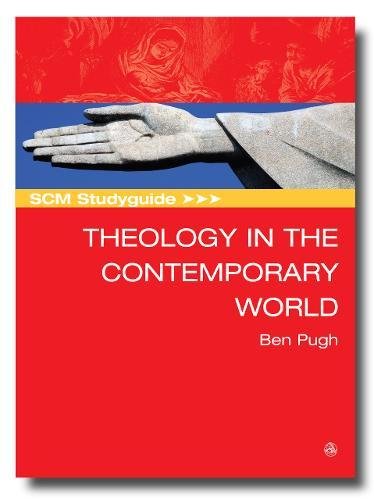Theology in the Contemporary World
Balanced, readable and well researched guide to some of the most important strands in theology today
 Theology in the Contemporary World
Theology in the Contemporary World
By Ben Pugh
SCM Press
ISBN: 978-0334055747
Reviewed by Alec Gilmore
Honest to God in the early 60s, followed by Vatican 2, initiated a total transformation of the theological landscape with long-term consequences not unlike Thatcherism in the world of economics, opening the door to significant progress on the one hand and re-evaluation of the past on the other. Nothing has been the same since.
Prior to 1960 theological education, excluded from some universities and with a limited presence in others, was the stock-in-trade of denominational colleges for vocational training. It was male, white and Anglo-Saxon with a strong Protestant component.
Today, despite the marked decline in vocational callings, biblical and religious studies thrive in many universities, and academic societies such as the Society for the Study of Theology and Society for Old Testament Study report increasing numbers. Theology is not only alive, it is thriving, as Third World theologians from Asia and Africa, Liberationists from Latin America and women from all over the world have all parked their tanks on the theological lawns.
Over the same period the world has thrown up a whole range of topics calling for theological reflection. Marriage is challenged by partnerships. Gay, lesbian and transgender relationships, unmentionable in the pre-1960s theological world, are now high on every church agenda.
Today must be one of the most exciting times to be teaching theology since the Reformation, but 'not if you happen to be in it' I can hear someone say. Challenging, yes. Demanding, certainly. But with so much uncertainty on so many fronts, it can be a headache for the teachers, a delicate debating point among students and and a nightmare for the 'GP' arriving in his first pastorate. Pugh's book is a contribution to fill the gap for the benefit of all.
In a Post-Christendom environment where Christianity is 'excluded from public life' and its followers marginalised, traditionalists will welcome the first three chapters on Christology (the Historical Jesus, the Holy Spirit and the Missional Church). In the next three chapters revisionists will warm to Pugh's treatment of Liberation Theology, Feminist Theology, and Theology and Sexuality, and hopefully both groups will do more than simply look over the wall at each other and endeavour to engage realistically. Each needs the other.
Two final chapters tackle Postmodern Faith with a distinctly forward looking approach from where we are, and Nonviolent Atonement, supplementing atonement models from the past (notably Penal Substitution), with a developing threefold approach (Victory, Scapegoat and Healing) from the Nonviolent Atonement movement.
Pugh's choice of themes is the fruit of experience, research, observation and statistical study. It is something of a mixed bag (as the author is the first to admit) and is not intended to be comprehensive. How could it be? This is the world of 'work in progress' and needs no defence even if the list is incomplete (names I missed included Sugirtharajah, Song, Alter, Habel and Trible) and includes some angles (Liberation and Feminism in particular) perhaps better described as 'topics or traditions' rather than 'theologies' but which nevertheless provide a lens to review various theological issues.
The work is balanced, readable, relevant, well researched and documented, and can be warmly commended.
Alec Gilmore is a Baptist minister
Baptist Times, 09/03/2018